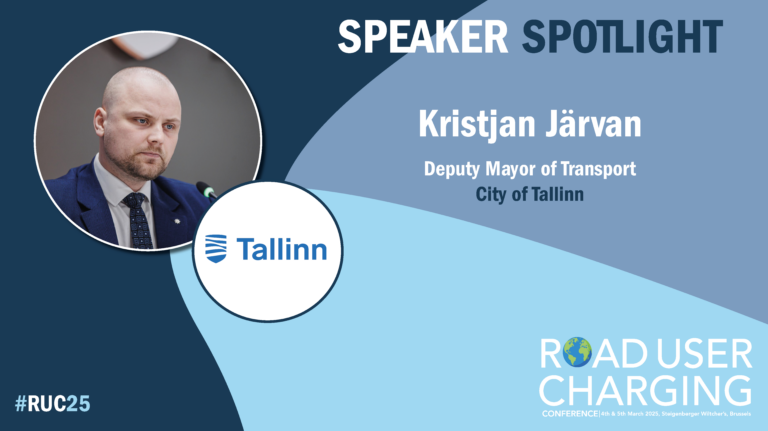As Road User Charging Conference 2025 approaches, CiTTi Magazine profiles the experts set to speak at the world-renowned event.
Taking place on 4-5 March at the Steigenberger Wiltcher’s in Brussels, Belgium, the 22nd annual Road User Charging Conference will explore the latest advancements in user-financed transportation.
The prestigious two-day event gathers industry leaders, policymakers and innovators from around the world.
It serves as a vital forum for discussions, knowledge exchange, and peer learning on best practices for planning, financing, implementing, operating, and maintaining tolling, road usage charging, and mobility pricing schemes across motorways, highways and urban areas.
FREE: Subscribe to the monthly Road User Charging Conference Newsletter!
One of the experts confirmed to speak at the event is Kristjan Järvan, deputy mayor for transport in Tallinn, Estonia.
Previously minister of entrepreneurship and IT in Estonia, Järvan has long been an advocate for the market economy in governmental and municipal policies.
His views have fostered political debate in Estonia, encouraging conversations on the economic feasibility of green deal policy initiatives.
At the conference, Järvan will speak about the critical role of mobility measurement in shaping the future of public transport and road user charging policies.
Drawing on Estonia’s experience with free public transport in Tallinn, his presentation will explore how key performance indicators – distance travelled, time spent in traffic, and the number of accidents – can be used to evaluate the success of public transport initiatives and their alignment with road user charging objectives.
Attendees will gain actionable insights into how these metrics can inform policy decisions, assess the impact of climate goals, and optimise funding strategies for zero-emission transport.
 Name: Kristjan Järvan
Name: Kristjan Järvan
Job Role: Deputy Mayor of Transport
Organisation: City of Tallin
What is the best aspect of your job?
People see the difference in mobility right away – I love the instant feedback to our work, especially when it regards public transport, parking spots for e-scooters or green waves in traffic.
What is the biggest challenge facing those with responsibility for user-financed transportation in 2025?
Tallinn hasn’t implemented user-financed transportation yet, so the biggest challenge would probably be to convince them that this would bring better quality and be worth it.
What’s your best piece of advice for those looking to implement user-financed transportation solutions?
Start small and don’t rush. People need time to adapt to change. By taking small steps, risks and mistakes are minimised, and any issues can be addressed quickly and with minimal effort.
Does legislation help or hinder development in the sector?
Legislation drives transport development within the framework of strict climate requirements. Since all additional regulations make transportation more expensive, it is questionable whether all these requirements are truly necessary. If we get less public transport for the same money – cleaner but much more expensive – is this development good or bad?
How will the business of user-financed transportation have changed by 2030?
Infrastructure changes take time. In Estonia, local municipalities are currently focusing on building bike lanes, which means user-financed infrastructure will face new challenges.
Why are you looking forward to speaking at Road User Charging Conference 2025?
When I was young and studying at a music school, I was always told that it’s better to play in a band with smarter people than yourself – that’s how you learn and improve the most. I take this wisdom to the Road User Charging Conference, hoping it will provide an opportunity to stay updated on the developments in road user charging and tolling schemes worldwide.


 Name:
Name:  Discover the key trends and challenges shaping the future of user-financed transportation –spanning tolling, pricing and road usage charging – at Akabo Media’s
Discover the key trends and challenges shaping the future of user-financed transportation –spanning tolling, pricing and road usage charging – at Akabo Media’s 


